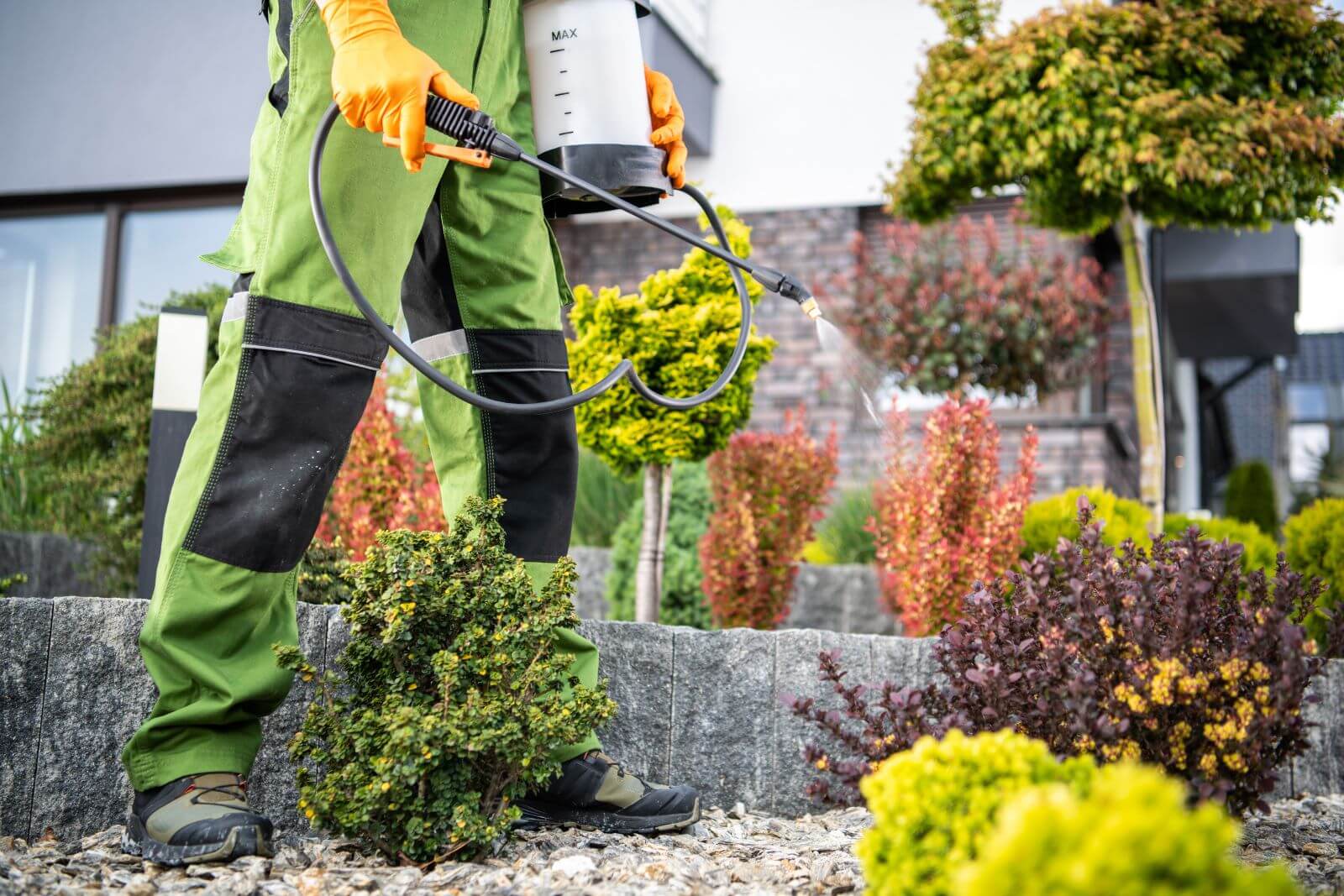Do you love plants?! Not only do they add green and life and beautify your home inside and out, but they improve air quality, absorb noise pollution from the street and spark joy as they leaf out and bloom! Indoor plants clean the air inside your home but beyond that they can lower blood pressure and overall stress levels. Outside, caring for your plants and tending to their soil has been found to release endorphins and improve brain health.
However, if you start to notice you have an infestation, a healthy outdoor garden can provide a perfect shelter for a family of rodents, insects, or other pests. We may love animals and nature, but we don’t want them invading your home and compromising the structure and value of your home. Whether you have perennials that have been thriving or years of a houseplant that you baby, the worst thing you can imagine is a pesticide that could damage your plants!
The Danger of Pesticides for Your Plants
Often the only way to truly remove insects or rodents from your property permanently is to use pesticides. We will do everything we can to avoid pesticides in the removal of your home, but to properly deal with the issue, sometimes it’s the best option. While Some companies may tell you that pesticides are safe for your beloved indoor plants and outdoor garden, this isn’t always the case. There are many plant safe products that may deter plants but even some essential oils used to remove bedbugs, can still be abrasive and even deadly to your garden. Even worse, if you are growing a food garden, you may end up eating pesticides in your next home-grown salad!
Phytotoxicity
Not all plants are the same. They all require different soil conditions, light, water, and fertilizers. In addition, some plants are more susceptible to damage from insecticides than others. When we treat your home, we do research to know what kind of plants you have and how they respond to phytotoxicity. Phytotoxicity is simply plant damage – a toxic effect – from something the plant was exposed to. While woody plants tend to tolerate insecticides well, it’s still important to monitor your plants, especially in the next growing cycle. Meanwhile monocots, such as palms, daffodils, tulips, and lilies as well as herbaceous plants are a lot more damaged by insecticides.
Plant-Safe Applications
Before we apply insecticides to your home or yard, we are well trained to inspect your property and identify what plants might suffer from the application. We know you have invested time and money into your plants but beyond that, they are a labor of love.
Is Pest Control Harmful to Plants?
We look at what type of plants you have, their location, and whether we can avoid them. Sometimes we can cover a plant to protect it from chemical application. It’s important to consider that many outdoor plants provide an environment for rats and insects to proliferate. It’s a difficult decision but sometimes it may be wise to consider a different plant choice to truly support the health of your entire property. However, whenever possible we are fully dedicated to protecting and supporting the health of your beloved plants.
Looking for Damage On Your Plants
If you watch and listen, plant lovers find that your plants are excellent communicators. If they have sustained some damage from pesticides, they will let you know. Often, the first signs show up on new growth, which is more vulnerable than established older growth. Discolored, curled, or burned leaves are a clear sign of chemical damage. It’s also common to experience plants dropping their leaves. The important thing about watching for these signs is that they can let you know that we should avoid this plant on the next treatment, or that your plant could be moved to a safer location.
Considering Pollinators
One thing to consider for your outdoor plants are pollinators such as butterflies, bees, hummingbirds, and a wide array of insects. These creatures are an important part of our ecosystem, helping plants propagate and prosper. If you have an insect problem in your home, it’s important to consider that most insecticides are going to target pollinators along with your pests. Avid gardeners often ask us to avoid their gardens to allow pollinators to thrive. We only recommend that you modify your garden to keep it away from the edge of your home. This can limit the hiding places that harmful insects must infiltrate your home.
We at Nuisance Wildlife Services know that you love your plants and how important they are. That is why we are transparent about the chemical we use and how to support and protect your plants while addressing your pest issue as aggressively and permanently as possible. Contact us today for a plant informed consultation!


